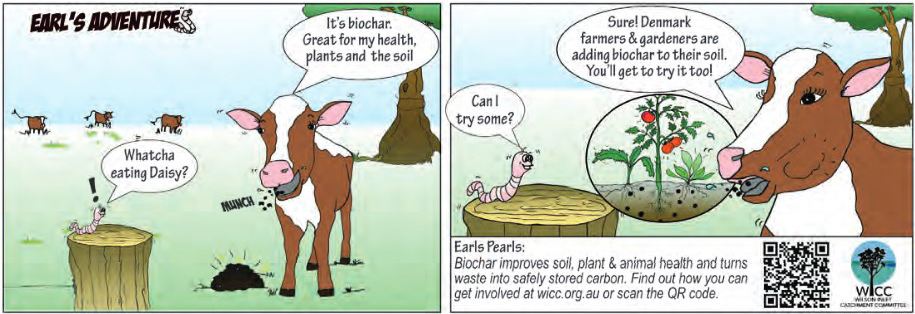Over 100 people attended the recent South Coast Biochar Forum, where they heard how biochar is set to become a multi-billion pound industry, with a global market estimated to reach £4 billion by next year.
Professor Stephen Joseph, a key speaker at the forum hosted by the Wilson Inlet Catchment Committee, highlighted the immense potential of biochar. He explained that this stable form of carbon can play a crucial role in sequestering carbon, improving the health of plants and animals, and managing various waste streams.
In his presentation outlining the "Farmers' Guide to the Production, Use and Application of Biochar", Professor Joseph stressed that biochar has a long history of improving soil quality, dating back thousands of years. Biochar is created through a process called pyrolysis, where organic materials, including plastics, are heated in a controlled environment.
This process can be carried out on a small scale at home or on a large industrial scale using high-tech pyrolysis units. Studies have shown that biochar can significantly improve animal health by enhancing the efficiency of the rumen, the first chamber of a ruminant's stomach. This leads to a substantial reduction in methane emissions, as well as improved milk yield and live weight gain.
Biochar also provides benefits for plants by acting as a "magnetic sponge" that increases moisture retention and promotes nutrient exchange in the plant's root system. However, the effectiveness of biochar is dependent on the feedstock used and the specific heating process.
Therefore, it is crucial to understand the characteristics of different biochar types and apply them accordingly to specific soil conditions. This explains why some individuals have used biochar without observing any benefits; it is akin to taking medication for a condition they do not have.
The "Farmers' Guide to the Production, Use and Application of Biochar" is available online at www.anzbig.org and serves as a valuable resource for understanding and implementing biochar.
Another challenge in adopting biochar has been the limited availability of commercially produced biochar. However, this is changing, with companies such as Fasera Char offering biochar for purchase. The guide also provides practical advice on producing biochar on one's own property, making it a valuable tool for "recycling" carbon.
Instead of burning woody waste or sending it to landfill, this approach allows for the capture of carbon and its return to the soil, thereby improving productivity.
The Wilson Inlet Catchment Committee (WICC) has received a cubic metre of biochar donated by Fasera Char for those interested in running trials on their land. For those interested in participating, a QR code is provided in the accompanying cartoon.
This article originally appeared in the *Denmark Bulletin
on 29 August 2024.

